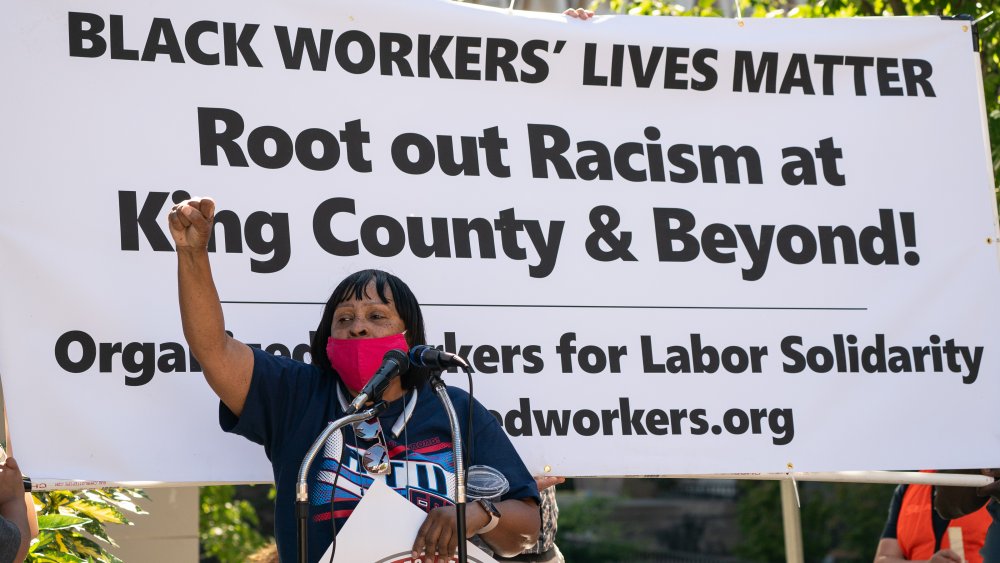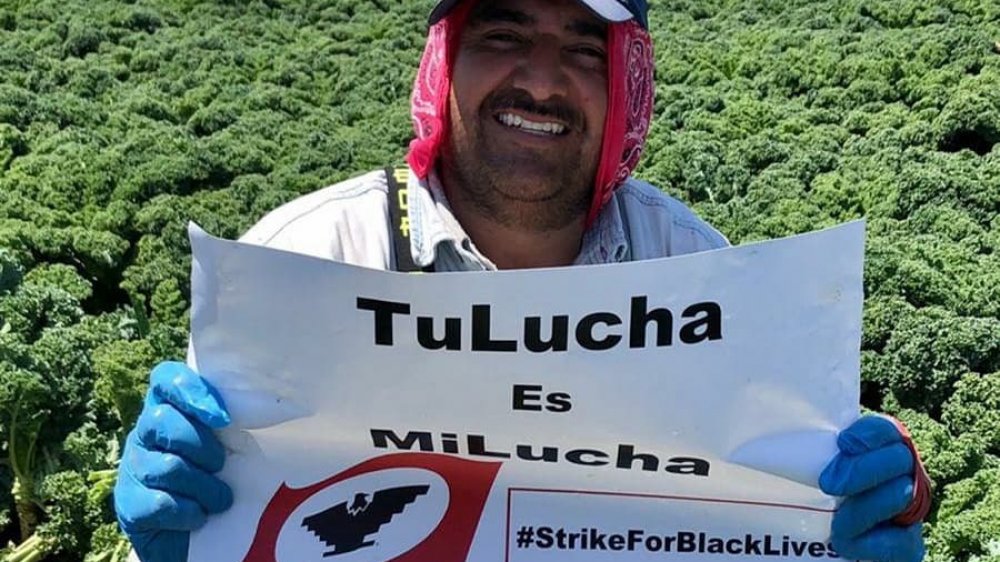The Real Reason Food Workers Are Striking
Fast-food workers, farmworkers, and other essential employees went on strike across the U.S. on Monday, July 20, to draw attention to racism, low wages, and unsafe working conditions during the COVID-19 pandemic. The message behind the Strike for Black Lives, which drew thousands of participants from New York to Los Angeles, was that economic justice requires racial justice.
McDonald's was one of the strike organizers' targets, according to Eater, because the fast food chain hasn't lived up to its recent statements in support of Black Lives Matter. McDonald's announced donations to the NAACP and the National Urban League on June 3 in a video posted to Twitter that lists the names of George Floyd and other Black people who were killed by police or other people. "We see them in our customers. We see them in our crew members. We see them in our franchisees. And this is why the entire McDonald's family grieves," the video's text said.
Despite the words, and the $1 million in donations (via Restaurant Business), McDonald's doesn't pay a livable wage and hasn't offered sick leave or adequate protective equipment during the pandemic, according to people participating in the strike. Seventy percent of McDonald's employees are women or minorities, Black Enterprise reported in 2016. Protesters gathered at a McDonald's in St. Louis to demand a $15 hourly wage (via the St. Louis Post-Dispatch).
Farm workers support Black people in racial justice effort
A 14-year McDonald's employee at the St. Louis strike said she made $10 an hour, which doesn't quite cover her expenses. "McDonald's is failing Black and brown workers," the employee, Betty Douglas, said. Another striking McDonald's employee named Adriana Alvarez, who spoke to the media before the strike, said McDonald's didn't give PPE (personal protective equipment) to the predominantly Black and brown workers she knew in the Chicago area.
McDonald's responded, saying it has improved employee safety during the COVID-19 pandemic, handing out more than 100 million face masks for workers (via The Washington Post). McDonald's also stuck by its statement that it supports racial justice. "We believe Black lives matter, and it is our responsibility to continue to listen and learn and push for a more equitable and inclusive society," the fast-food company said in a statement to The Washington Post.
United Farm Workers, a union that represents migrant workers, participated in the Strike for Black Lives and said the causes of Black people and Latinos are linked. Farm workers are not guaranteed a minimum wage and otherwise aren't protected by federal labor laws. "Undervaluing farm work is steeped in the racist shadow of slavery, since southern congressmen voted to exclude farm workers from labor protections in the 1930s," the UFW tweeted. "None of us are free until all of us are free."

